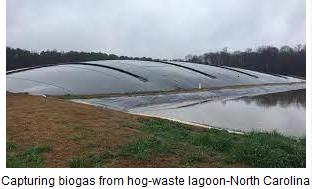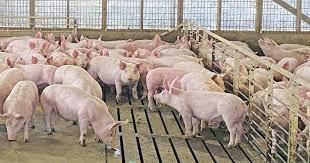 By a 4 to 3 margin the Iowa Supreme Court recently ruled that "protecting and promoting livestock production is a legitimate state interest” Accordingly the Court granted partial immunity from nuisance suits “as a proper means to that end". The ruling overturned a 2004 decision allowing lawsuits against CAFOs creating a nuisance if landowners lived in the area before a CAFO was established. The previous ruling as in many states determined that immunity from nuisance lawsuits was in violation of the Iowa constitution.
By a 4 to 3 margin the Iowa Supreme Court recently ruled that "protecting and promoting livestock production is a legitimate state interest” Accordingly the Court granted partial immunity from nuisance suits “as a proper means to that end". The ruling overturned a 2004 decision allowing lawsuits against CAFOs creating a nuisance if landowners lived in the area before a CAFO was established. The previous ruling as in many states determined that immunity from nuisance lawsuits was in violation of the Iowa constitution.
The plaintiff was a landowner who purchased a rural tract in Emmet County in 1972 and erected a home in 1999. He was impacted in 2015 when a 4,000-hog operation was built by Defendant BWT Holdings approximately half a mile from his residence.
 The ruling with Justice Thomas Waterman writing for the majority still allows homeowners to sue operators of CAFOs if the operations fail to comply with federal or state laws or if obvious deviation from acceptable management can be demonstrated.
The ruling with Justice Thomas Waterman writing for the majority still allows homeowners to sue operators of CAFOs if the operations fail to comply with federal or state laws or if obvious deviation from acceptable management can be demonstrated.
Justice Christopher McDonald writing for the dissent noted, "are we telling the existing property owners that they are required to ‘take one for the team’ as the private owners next door emit nuisance odors under a scheme of statutory immunity?” The ruling deprives the property owner of the right to claim nuisance and seek a legal remedy. McDonald considered that the decision was in violation of the Iowa constitution.
While hog farmers in states with large pork production including Iowa and North Carolina have been subject to nuisance claims, it is evident that technology including bio-digesters will be ultimately be required to minimize odor and to reduce the quantum of nitrogen spread on soil that ultimately percolates down to water tables and also enters streams.
required to minimize odor and to reduce the quantum of nitrogen spread on soil that ultimately percolates down to water tables and also enters streams.
Although egg producers are in a more fortunate position than hog farmers with respect to quantity and nuisance potential of waste, it is evident that simply spreading manure is not a long-term solution. Drying wet manure in rotary installations and bio-digestion to capture methane and other gasses will ultimately be required.